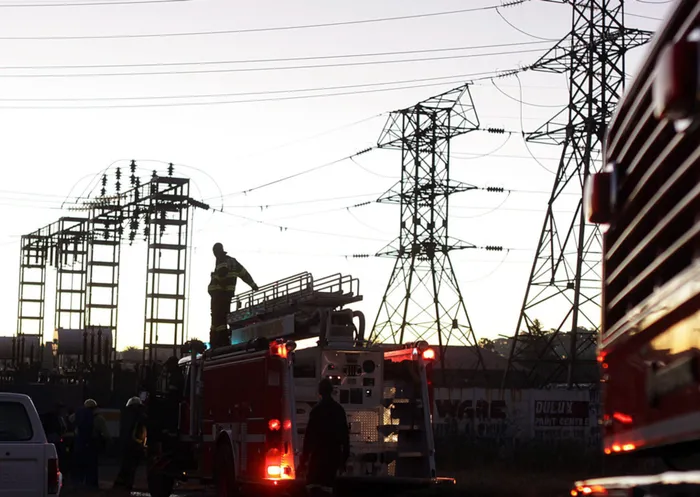Power stations 'don’t affect health'

File photo: The government is building two coal-fired power stations, Kusile and Medupi, in Mpumalanga and Limpopo respectively. Picture: Timothy Bernard File photo: The government is building two coal-fired power stations, Kusile and Medupi, in Mpumalanga and Limpopo respectively. Picture: Timothy Bernard
Johannesburg - Eskom is asking for exemption from strict new air quality standards, saying its power station emissions don’t harm human health.
The new standards controlling the levels of particulate matter, sulphur dioxide and nitrogen oxides emitted by power stations will come into play in 2015, with revised and even stricter standards for 2020.
The rules will apply to Eskom’s 20 coal and liquid fuel power stations.
But the company says it will not meet these standards on time, asking for postponements and even exemptions for many of its stations.
Nine stations are expected to meet all the 2015 requirements, three might need more time, and eight will not have met at least one of the standards. For them, Eskom is asking for exemption.
The 2020 requirements will be even harder to meet.
Seven stations will need exemption for at least one of the pollutants, including the delayed Medupi power station. It is seeking exemption from its sulphur dioxide emission levels.
Only three stations will meet all the 2020 standards. Eight stations won’t meet any of the 2020 standards on time, with most of these in Mpumalanga.
Eskom says it will cost R210-billion to bring all its power stations up to standard. The new technology to control sulphur dioxide emissions will also need more water – an estimated extra 70 billion litres each year.
It also says its power stations don’t affect residents’ health because of the high smoke stacks.
“There is not a linear relationship between emissions and ambient pollution levels at the ground, that is, the air that people breathe,” Eskom says.
“Because of the tall stacks at all power stations, the emissions are dispersed and diluted before they reach ground level.”
But the Department of Environmental Affairs (DEA) disagrees, saying: “Industrial emissions of any kind have potential implications for human health.
“From previous work conducted in the National Priority Areas where power generation facilities are located, it has been observed that coal-fired power generation contributes significantly to air pollution.”
Studies on just what Eskom’s contribution alone is to ambient air quality are still under way.
The DEA wouldn’t say whether it would oppose Eskom’s application as it would be “inappropriate to pre-empt the decision on the application before such application is lodged” – but said issues raised by the power supplier, like water scarcity, would be considered.
Environmental NGO groundWork also disputed Eskom’s health claims.
Its research manager, Rico Euripidou, said: “The highveld was made a priority area precisely because its air quality is so bad. It doesn’t even meet current air quality standards, which are very poor.”
Euripidou said Eskom’s request for exemption would open the door for other industries to do the same.
“Is it really ethical for a company like Eskom, which pollutes a hell of a lot, to apply for exemption in an area already way out of standards, and say it doesn’t impact on health? It’s unbelievable,” Euripidou said.
But North West University professor Stuart Piketh, who conducts research into emissions control, thinks the DEA needs to redirect its focus.
He says billions spent on upgrading power stations should instead go to combating domestic burning of wood and coal – the major source of air pollution that has a direct impact on one’s health. - The Star